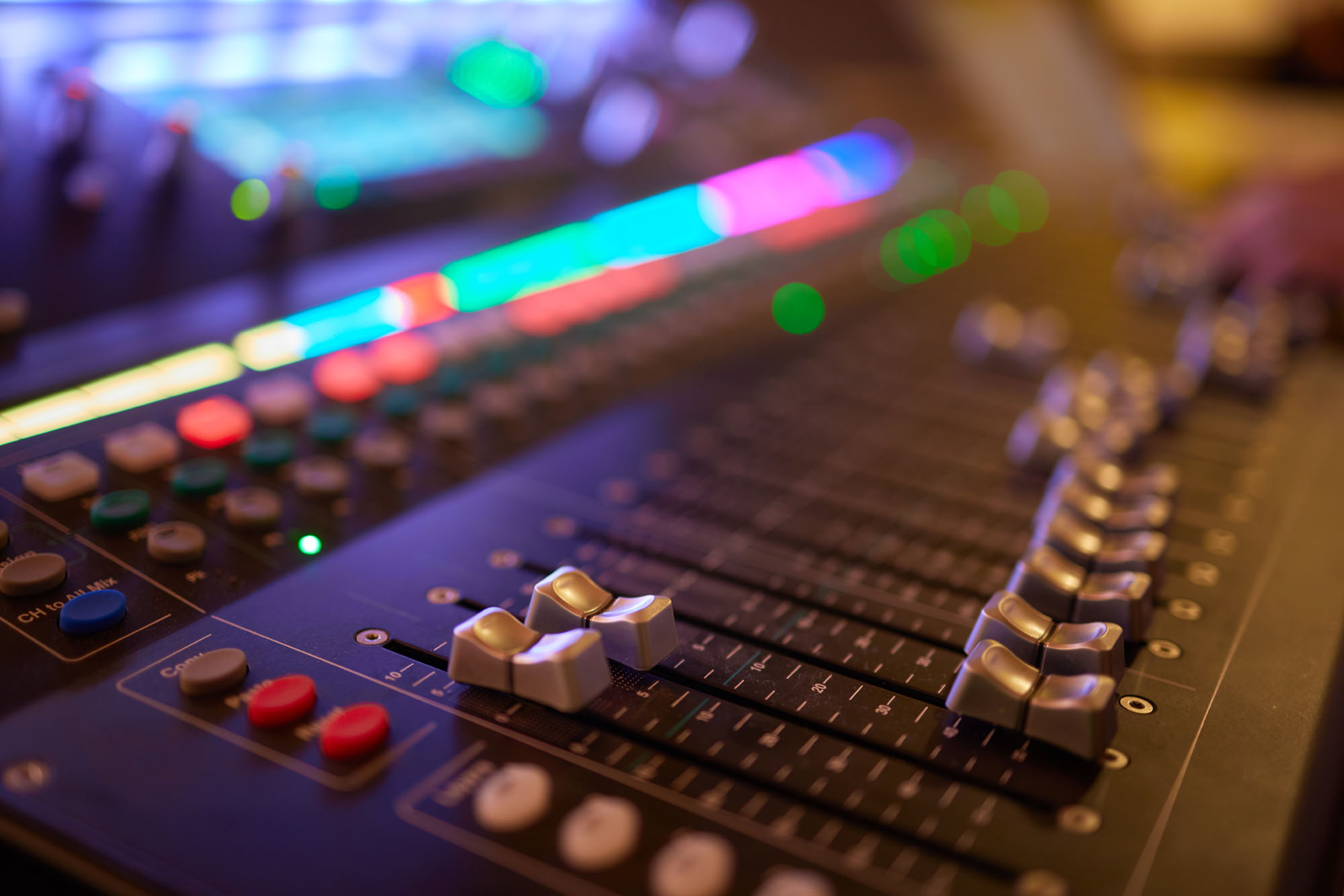Music Tracking, Mixing, Mastering - What's the difference?
Mar 19, 2024
If you are just starting to get into music production, there may be some terms such as music tracking, mixing and mastering that have you a little confused and you can not fully understand how they differ, if so, I recommend you read this article that will help you clarify those doubts.
What is tracking in music production?
Before knowing what we are referring to when we talk about tracking music, it is necessary to know what is a track in music. A track is an audio recording in a music project, a track would be considered just one layer of sound within a composition that has several layers. Tracks can be recorded live in a recording studio, either with an instrument, vocals or even directly through MIDI programming to produce virtual sounds.
Tracking in music is simply the process of recording the tracks, that is, the instruments or vocals that will later form the song. It is called tracking because each thing that is recorded is generating its own track so that later you can work on the balance and effects of each track separately.
Two important aspects of the tracking process
Both aspects are equally important, either for a low-budget or a high-budget production and thanks to these two aspects the following steps such as mixing and mastering will be much easier.
1. Comping
Comping is a process where from multiple takes, the best fragments are chosen to get the perfect take. Comping is mainly used for vocals.Lead vocals should always be assembled through this process, the voice is the most important instrument and the furthest away from the perfect take.
2. Arrangement
Arrangement is the process of arranging all the other aspects (besides the basics like lyrics, melody and chords) that make up a song. Aspects such as instrumentation, harmony distribution, rhythm and if all this also works then it will make the mixing engineer's job much easier.
What's next after tracking the music?
So, after a good job of music tracking, it's time for mixing. Mixing can be tricky, it takes a long time to be a good mixing engineer, but that doesn't mean you can't try.
Mixing
Mixing is the process where the mixing engineer enters, it is the first step in what is known as post-production, which is where you start to give shape to the song balancing the individual tracks so that they sound good when played together, using tools such as EQ, compression, panning and effects like reverb, delay, modulation, pitch fx and many more.
The mix depends a lot on the song, the musical genre, the musicians, the quality of the recording, the arrangement, all things that you may or may not have under your control. When you mix for example an album, the mix must be cohesive with each of the songs, all this is achieved by adjusting and balancing the components mentioned above.
The decisions made at the time of the mixing can direct the song in a thousand different ways, directly affecting how the song will be interpreted.
Mastering
Technically speaking, and as Bobby Owsinski says in his book The Mastering Engineer's Handbook: "mastering is the intermediate step between mixing the audio and having it replicated or distributed", in other words, is the process of fine-tuning the level, frequency balance, and metadata of a track in preparation for distribution. Mastering is the moment where the music is maximized, both for the listener and in some way for the industry, the objective is to enhance the overall sound and improve some aspects already seen in the mix. Most of the mastering lies in the ears of the mastering engineer and not in the tools that are used, that's why the experience of the mastering engineer is really important.
Mastering is the last step in the creative process of the song, but just because it's the last doesn't mean it's less important, maybe some modification made in the mastering is just the twist the song needed to take it to the next level.
Is mastering really necessary?
Although one may think that after mixing the song is finished, it is the mastering step that makes the difference. So, the answer would be yes, it is very necessary, mastering will make everything make sense throughout the record and also prepare the music for any distribution format, such as Vinyl, MP3/AAC, streaming services such as Spotify, and broadcast. Nowadays it is necessary even for TV commercials or radio.
And of course, if budget is an obstacle many choose to let the engineer in mixing to take care of this last part or another option would be to do it yourself if you are mixing your own music.
The role of mixing and mastering in film and video production
Now, what changes when we have to mix and master a video? Let's start with the mixing, here one of the most important points when mixing audio for video is always to give priority to the dialogue, the mix helps to balance the dialogue with the music and special effects. A good job in the audio mix for TV or film can define the environment, the mood, that ends up being transmitted later on the screen.
When mastering for a video production, as with a song, the important thing is to prepare the recording for distribution, in the case of a video it can be for film, television, commercials, or games. When mastering for film and tv, it is best to use stem mastering, this way you can get multiple versions of your master or song, having multiple recordings of a master is very important for the producers of a film or tv.
Fortunately, at Media Music Composer we have mixing and mastering engineers who can help you with your song or video production, so don't hesitate to contact us.
The importance of not skipping any of these 3 steps
No good work is done rashly, that is, it will be necessary to do these steps if what you want is a good song. That's why you need not only a producer but also a mixing and mastering engineer to get your track to the top level.
Final Thoughts
Music tracking, mixing and mastering are just three big moments in music production and to be totally honest I don't think any of them should be missing in the musical process of a song. So, now that you know how they differ, the only thing left to do is to get down to work and start producing your next song.


